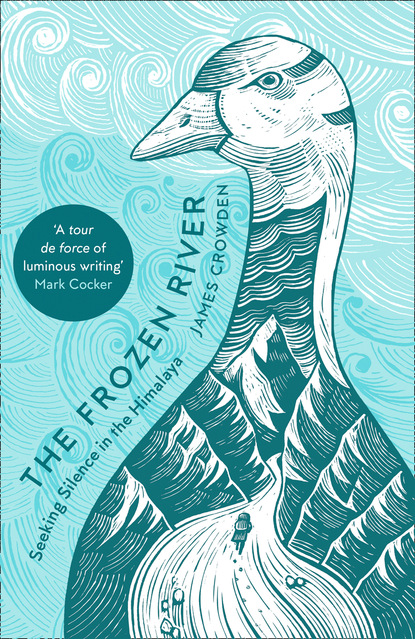
Полная версия:
The Frozen River
In the summer there are festivals and half of Zangskar gathers to read the Buddhist scriptures. As well as housing Naropa’s shrine, Sani is also the site for the guardian deity of the valley, called Junu Tunglak.30 They used to make animal sacrifices in his honour well within living memory. The shaman would go into a trance and give prophecies, even stick swords into himself. The name of Junu Tunglak is feared and respected, and the old rock carvings are smeared with butter as offerings.
After Sani we crossed the plain of Padum and passed long mani walls, old carvings and the odd lhato. It was getting towards afternoon and another dust storm blew up. In the distance it was just possible to make out the village of Padum clustered round the terminal moraine, the houses closely packed between the rocks.
When we approached I saw a strange sight. Horsemen by the score suddenly emerged from the village, maybe fifty or sixty of them galloping off in all directions, all in red cloaks. It seemed as if all the headmen of all the villages and all the head monks had gathered there for a conference or special meeting and were now returning home. It was a fantastic sight in the dust and the dusk. These men knew how to gallop. As we got nearer, many of them passed us, proud, almost warlike. It was like a raid, and some even carried rifles. They had probably served in the Ladakh Scouts. Buddhist, yes, but Zangskari first.
Arrival
At long last I had arrived, my journey from Panikar to Padum having taken six days, one day less than planned. The packhorses were unloaded, my luggage taken upstairs and dumped on the floor of the small room. The horses had been excellent. I could not have done without them. I went to the tehsildar and in his small cramped office, which was also his living room, I exchanged the radio/cassette recorder for 1,000 rupees. I then paid the horsemen their balance and gave them some extra clothing to stave off the cold on the way back.
From the small temple on top of the mound I heard the long, low, unmistakeable sound of monastic horns, like the lowing of cattle. It went on for most of the night, as it was the tenth day of the tenth month of the Fire Dragon year. The ceremony commemorated the arrival in Tibet of Guru Rinpoche, alias Padmasambhava, after whom Padum was said to be named. Form and emptiness, skilful means, Middle Path and all that, the wisdom of the sword cutting through delusion. I felt that Buddhist Zangskar was at last beginning to flex its muscles.
I would miss the lilt of the packhorses, their pace and temperament, their silent loyalty and the steady click, click, click of their hooves, the smell of eau de cheval. One journey was over and another much longer journey was beginning. Surviving the winter was not just a physical challenge but like a koan, an unanswerable question, a riddle, a silent Buddhist paradox that had to be solved.
Конец ознакомительного фрагмента.
Текст предоставлен ООО «ЛитРес».
Прочитайте эту книгу целиком, купив полную легальную версию на ЛитРес.
Безопасно оплатить книгу можно банковской картой Visa, MasterCard, Maestro, со счета мобильного телефона, с платежного терминала, в салоне МТС или Связной, через PayPal, WebMoney, Яндекс.Деньги, QIWI Кошелек, бонусными картами или другим удобным Вам способом.
Вы ознакомились с фрагментом книги.
Для бесплатного чтения открыта только часть текста.
Приобретайте полный текст книги у нашего партнера:
Полная версия книги
Всего 10 форматов



